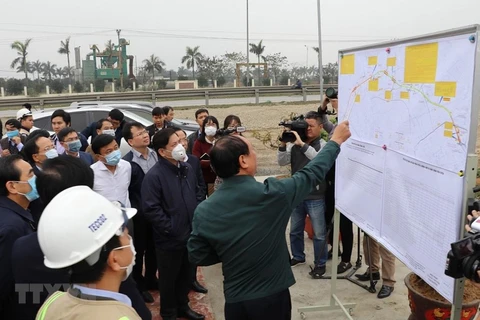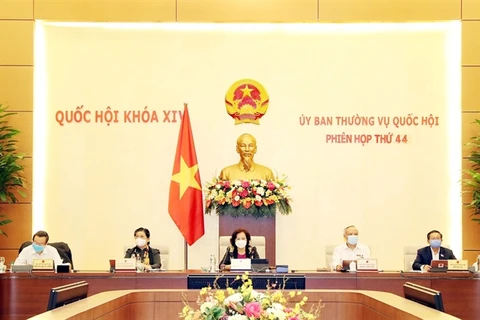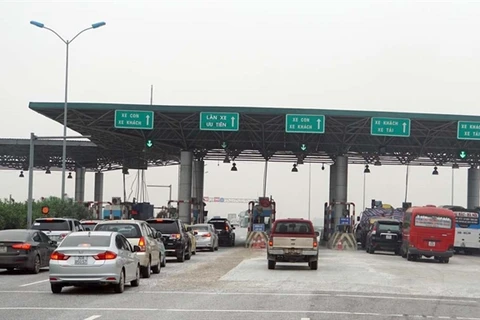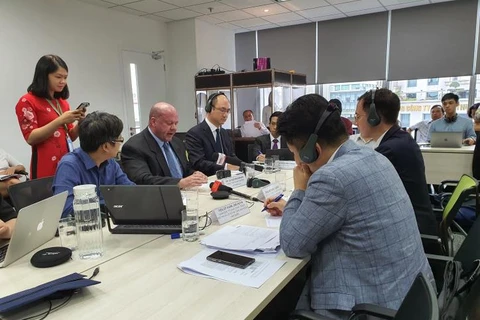Hanoi (VNA) - The National Assembly (NA) Standing Committee will put forward and comment on a report on a draft law on investment in the form of a Public-Private Partnership (PPP) during a session on May 26.
While the public sector’s investment is sourced from the State budget, the private sector has to use its own money. Therefore, the draft law should ensure fairness in the interests of the public and private sectors. For instance, private firms should be able to receive a refund on their initial investment if they do not win the bid.
NA deputy Dang Ngoc Nghia of the central province of Thua Thien-Hue spoke to reporters on the sidelines of a session on the draft law on PPP investment.
Reporter: During a session on May 26, the NA Standing Committee will consider and comment on the draft law on PPP investment, what is your view on this issue?
NA deputy Dang Ngoc Nghia: In my opinion, the law must create an investment climate of openness and transparency, while addressing bottlenecks in the current law. The diversification of investment forms, such as public, private and PPP investment, aims to ensure socio-economic development and gather resources.
Some regulations in the law on investment have become more flexible, open and transparent, including granting permission to firms, investment promotion and resources preparations. However, fairness and clarification are needed between the two sectors’ investment.
Private investors have to fund a huge amount on their own, while investment of the public sector is from the State budget. If a private firm does not win the bid, there is no guarantee that the money it has spent will be refunded.
Reporter: What need to be done to encourage firms to take part in PPP projects?
NA deputy Dang Ngoc Nghia: Government agencies need to review projects from the pre-investment stage. In a case where a company joins in the construction of a bridge or a road and has to shoulder the cost of a pre-feasible report and initial design, yet fails to win the bid, that sum of money should be refunded. This is not mentioned in the current law. The matter was brought up by voters during meetings with leaders.
In addition, strategies are needed to ensure capital, quality of the constructions and progress. In reality, there are businesses that win the bid but hire other contractors.
Competent agencies recently switched the bidding form for some expressway investment projects from calling for foreign investment to domestic investment. Therefore, incentives are needed to attract major investors in key projects.
For example, the Long Thanh Airport project is approved for 5 years but is yet to start due to policy issues. Current bidding procedures need to be improved to be consistent with reality. Favourable investment mechanisms will help to generate jobs, bolster economic growth and create an attractive climate for both domestic and foreign investors, especially major ones.
Reporter: With regard to the North-South Expressway project, the Government has proposed switching eight sub-projects from PPP investment to public investment, what do you think about the proposal?
NA deputy Dang Ngoc Nghia: The NA has considered the eight eastern expressway sub-projects for a while, but there are issues making PPP investors hesitant, while foreign ones encounter those regarding security and defence.
A lack of a law on PPP investment caused fears among investors over risks in policies. High costs will be required because the expressways pass through remote and mountainous regions. Therefore, it is difficult to call for private investors in those projects.
I agree with the government - it was the right decision to switch to public investment. The routes will contribute to social welfare, defence-security, economic development and trade of goods as well as reduce overload on National Highway 1.
To ensure the quality of the construction, however, the Government needs to put forward incentives to call for the participation of major companies in the projects, paying heed to the time to complete. The Ministry of Transport and authorities of localities the routes going through must keep a close watch on the implementation of the projects.
Reporter: Thank you so much!./.
























